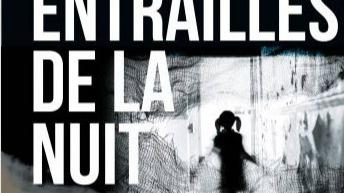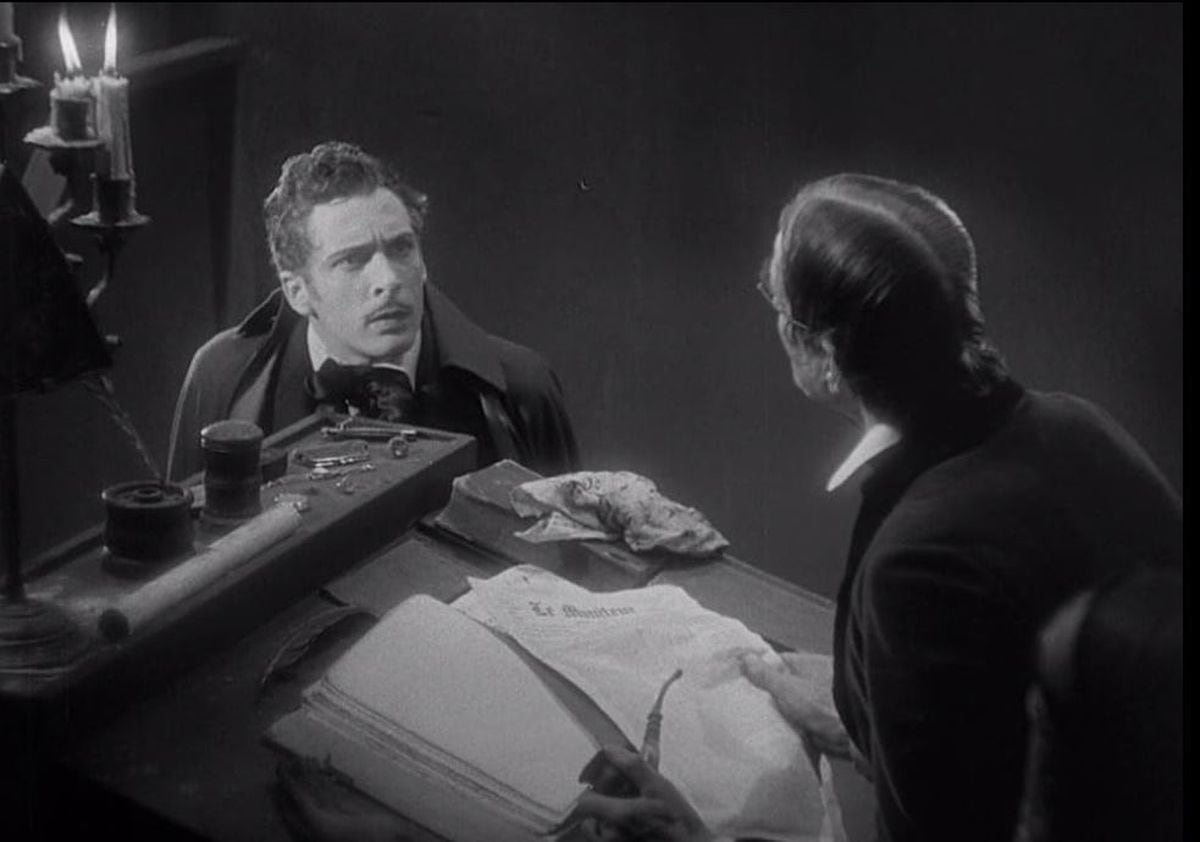Since 2001 and
The Soldiers of Salamis
, Javier Cercas has been one of the most famous Spanish novelists in the world.
His work has been translated into twenty languages.
In 2019, he began a series of noir novels centered on the Terra Alta region in Catalonia.
For the first volume,
Terra Alta
, he received the Planeta Prize, one of Spain's most prestigious awards.
As the translation of the third part
, Le Château de Barbe-Bleue
, arrives, he will be one of the star guests of Quais du polar de Lyon.
LE FIGARO.
- What made you decide to write your first crime novel,
Terra Alta,
in 2019 ?
Javier CERCAS.
-
I believe that all my novels - and all the novels that interest me, since
Don Quixote
- are somehow detective novels, at least in the sense that there is in all these books an enigma and someone who seeks to resolve it: this is the very essence of this literary genre.
But it is true that in the
Terra Alta
novels the protagonist is a policeman (in the last volume a former policeman) and the police atmosphere is more evident.
There are only two kinds of novels: good novels and bad novels.
Everything else is just talk
Javier Cercas
Why did I write these novels?
Partly because, when I finished writing
Le Monarque des ombres
, I felt that I had finished with him something that I had started almost twenty years before in
Les Soldats de Salamis
and that, if I continued on the same path, I ran the worst danger that a writer could run: that of repeating himself, of becoming an imitator of himself (at this point, the writer is dead, because he can no longer do anything say again).
So I wrote these novels in part to renew myself, to reinvent myself, to find a new writer in myself, to be able to continue saying new things.
I don't know if I succeeded, but that's what I tried to do.
To achieve this degree of mastery of the codes of the detective novel, we imagine that you are a fan of the genre?
If so, who are your favorite authors?
I am not a detective novel reader.
I just like good novels, and some good novels happen to be detective novels, or what we usually call detective novels.
Years ago I wrote a book about one of the first Spanish writers to have used the codes of the detective genre in his own way - Gonzalo Suarez - and at the time I read a lot of classics of genre, like Hammet, Chandler or Simenon, who are not great authors of detective novels but great novelists in their own right.
Read alsoIndependence: Javier Cercas faithful to his ghosts
As are today, for me, Don Winslow or James Ellroy.
For the rest, I am surprised that certain prejudices about detective novels are still alive today, such as the one that consists in saying that it is a minor genre.
It's stupidity that betrays great ignorance: in literature, there are no major or minor genres, there are only major or minor ways of using genres.
In short, there are only two kinds of novels: good novels and bad novels.
Everything else is just talk.
The novels of Dolores Redondo, Victor del Arbol, Carmen Mola give rise to successful films or series.
How do you explain this new golden age of Spanish crime fiction?
I have no explanation.
What I do know is that the detective genre is today - in Spain, France and all over the world - a very popular genre.
Which poses a problem.
For one of the main literary superstitions of our time is that which says that good literature can only be minority, almost secret literature from the catacombs.
This is another stupidity:
Don Quixote
was a very popular book in its time, just like the dramas of Shakespeare or the novels of the great novelists of the XIX century.
I'm not saying that only popular literature is good literature (that would be stupid too), I'm saying that it isn't necessarily bad.
And that the best thing that can happen to literature is that it becomes popular again: that it tells relevant things again.
More than popular literature, I am for the popularity of literature.
And there is no doubt that today the detective genre enjoys great popularity.
Did you know from this volume that you would write several with the character of Melchor Marin?
And why were you inspired by the "Hero of Cambrils"?
The truth is that I didn't want to write a crime novel at the start: simply, at a certain point in the writing process, it became obvious to me that my protagonist could only be a policeman, perhaps because the central theme of the novel is related to law, justice and revenge.
And, at another moment, another obviousness imposed itself on me, namely that my policeman could only be the so-called "hero of Cambrils", an anonymous policeman who, on August 18, 2017, killed in a few seconds four terrorists who were about to cause a massacre on the Cambrils seafront promenade.
Melchor was born from my fury, from my pain, from my desire for revenge, from this darkness that we all carry within us
Javier Cercas
I don't like to impose myself on novels: I like that novels impose themselves on me.
But when I finished the first volume, something happened to me that had never happened to me before;
I felt that this was not the end, that the novel I had just written was part of a larger whole, and I immediately imagined not a series but a tetralogy, which eventually became a trilogy (the fourth volume is almost written, but I will not publish it yet).
Besides, why lie: I think I fell in love with Melchor Marin.
Melchor, like Vidocq, is a former convict.
His model, at the beginning, was Inspector Javert from Les
Misérables
, his bedside book, which decided his career as a policeman.
And yet, he will evolve into an obsessive vigilante who asserts,
“Hate is a respectable feeling.”
Is it its richness and its ambiguity that inspire you?
Absolutely.
From my point of view, literature must show the infinite complexity of the human being, and Melchor is a very complex character, full of shadows but also of light, capable of the best but also of the worst.
It was born from my fury, my pain, my desire for revenge, from this darkness that we all carry within us and that Georges Bataille called
“the accursed part”
.
But Melchor also has extraordinary virtues, which are no longer mine but his (and from which I don't know where they come from).
Read alsoJavier Cercas: “As great as he is, Galdos is still not the equal of Balzac or Dickens”
Courage, for example, which is the essential virtue, the foundation of all the other virtues, because it is courage that makes them possible.
Or again - this virtue becomes very visible in
Bluebeard's Castle
, but it was in Melchor from the start - charisma, understood as this mysterious ability of certain people to gather around them a community of ordinary people who, thanks their charisma, surpass themselves and are capable of doing extraordinary things, like risking their lives for a just cause.
Anyway, you understand why I'm still in love with Melchor.
In each volume of the Terra Alta
series
, your characters repeatedly quote the novelist Javier Cercas, author of
Terra Alta
, sometimes claiming that what he writes in his novels is true, sometimes false.
Why this mise en abyme?
Once again: because it seemed to me necessary, almost inevitable.
I mean it seemed logical to me that in the Terra Alta region - which is an actual place in southern Catalonia - some people read
Terra Alta
and ask Melchor if he has read the novel he stars in (Melchor hasn't read it, of course: he only reads 19th century novels) or that they talk about this Javier Cercas who wrote it, above all to make fun of him, to say that he invents everything, and things like that.
Humor is the most serious thing there is, but well-understood humor begins with oneself
Javier Cercas
So, on the one hand, it seemed essential to me and, on the other hand, I cannot conceive of a novel without humor, or at least without irony: for me, humor is the most serious thing there is, but Well-understood humor begins with oneself: if one is not capable of laughing at oneself, one has no right to laugh at anything.
So any pretext seems good to me to laugh at myself.
And this one was ideal.
Read alsoJavier Cercas, an amazing boy
From
Terra Alta
to
Bluebeard's Castle
, you denounce the impunity of the powerful, the corruption of politicians and the police, but isn't it above all the question of violence against women that torments you?
Yes, without the slightest doubt: for me and especially for Melchor.
I believe that the cause of equality between men and women is the most just cause of our time, and the permanent violence against women disgusts me, revolts me.
But she disgusts Melchor even more, she revolts him even more.
Not for ideological reasons - Melchor is the opposite of an ideologue - but for biographical reasons: because he saw how this violence was inflicted on his mother, his wife, his daughter.
This explains a lot of things in the
Terra Alta
novels and it's something that's present from the first volume, although it becomes more noticeable in the last one.
It's normal: at the end of a novel, everything that happened before makes sense.
Is there a TV series project based on the
Terra Alta
trilogy ?
Yes, and filming will begin very soon, although I will be involved as little in the series as in all the film, theatrical adaptations, etc.
which were made from my novels (there are currently two other television projects in progress: an adaptation of
Anatomy of a Moment
and another of
The Imposter
).
Bluebeard's Castle
, by Javier Cercas: reckoning in Majorca
It is in the Catalan region of Terra Alta, where the horrible battle of the Ebro Valley took place in 1938 (16,000 dead), that Javier Cercas chose to place the epicenter of a series of novels blacks (see above) dominated by the figure of Melchor Marin.
A former drug dealer, a former convict who got away with it thanks to a lawyer and reading Les Misérables, Melchor became a police officer.
His model?
Inspector Javert.
Read alsoThe monarch of the shadows, by Javier Cercas: lower the masks!
In Cambrils, listening only to his courage, he killed four Islamist terrorists.
He is a hero, but also an angry man.
His mother, a prostitute, was found massacred in a vacant lot.
In Independence, the second part of the series after Terra Alta, he discovered the identity of his assassins.
While his wife also lost her life because of one of his investigations, he finds himself alone with their daughter, Cosette.
In
Bluebeard's Castle
, the teenager is horrified to discover the truth about her mother's death.
She thought it was an accident, it was murder.
Her father, to protect her, lied to her.
Disgusted by the investigations he conducted and which revealed the corruption of politicians, policemen and the impunity of the powerful, Melchor left the police to become a librarian.
Read alsoNorman Manea: “Philip Roth, my American brother”
To forget her father and his lies, Cosette went to party in Majorca with a friend.
On the day scheduled for her return, the girlfriend came home alone.
Melchor is convinced that something has happened to him.
Refusing to wait for the police to move, he leaves for Majorca.
And his life, once again, changes.
With the help of friendly police officers and a few courageous people, he takes up arms… Javier Cercas wonders, once again, about the status of the “hero”, about justice and its limits, hatred, revenge.
Built like a thriller, his novel is more than that: it is a cry of anger, of rage, in the face of violence against women, his own and all the others.
"Bluebeard's Castle", by Javier Cercas, translated from Spanish by A. Grujicic and K. Louesdon, Actes Sud, 352 p., €23.
In bookstores April 5.
Press service
“Follow all the news from Figaro culture on
and
.
» Find our literature section on
Le Figaro Store
.



/cloudfront-eu-central-1.images.arcpublishing.com/prisa/CWTVFTLOJZE3LOEILGGNWKURM4.jpg)



